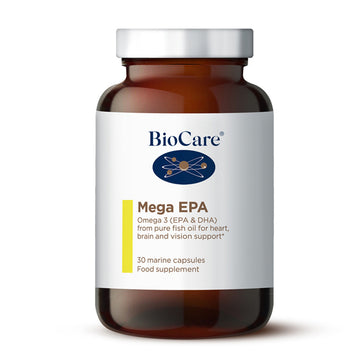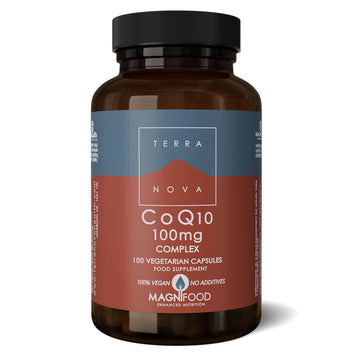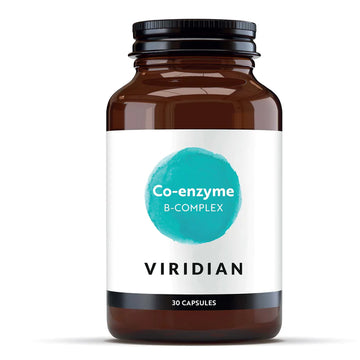It’s never too soon to start thinking about your heart health.
How To Lead A Heart Healthy Lifestyle
1. DAILY EXERCISE
Exercise is one of the best things you can do for your heart.
Regular exercise strengthens the heart and supports the body’s ability to utilize oxygen. Better use of oxygen improves circulation, which makes daily tasks less strenuous on the heart. And there’s more: doing cardio is linked to a positive mood and lower stress. Put it together, daily exercise and lower stress can lead to better sleep which can support heart health – it’s all interconnected.
2. MANAGE YOUR STRESS LEVELS
Occasional stress can also indirectly affect you by impairing your decision making. For example, when you are stressed you may succumb more easily to eating high-sugar and low-nutrition foods, smoking, or excessive drinking — all of which can damage the heart.
Building healthy stress-management techniques into your life can help support a healthy heart. Consider meditation, talking to loved ones, journaling or going for a brisk walk.
3. GET RESTFUL SLEEP
Sleep is a crucial time for your heart to recover from the day. While asleep, blood pressure lowers and heart rate slows down. On the other hand, lack of sleep can cause your body to release the stress hormone cortisol which can negatively affect the heart.
If sleep is an issue for you, routine may help: you can create healthier sleep habits by reducing exposure to bright light an hour before bed, making sure to get at least seven hours of sleep, and setting a consistent bedtime so your body knows when it’s time to doze off.
Making supplements a part of your daily routine can give your heart the added support it needs. Which supplements should you take to support your heart health?
1. OMEGA-3 FATTY ACIDS
When you think of heart health supplements, omega-3 fatty acids are probably what jumps to mind — and for good reason.
There are three types of omega-3 fatty acids: alpha-linolenic acid (ALA), eicosapentaenoic acid (EPA), and docosahexaenoic acid (DHA). EPAs and DHAs are considered “long-chain,” and are mainly derived from fish oil. ALAs are considered “short-chain” omega-3 fatty acids. The body can produce EPA and DHA from short-chain omega-3s such as ALA, but conversion is poor at an average rate of less than 10%.
While ALA is the only omega-3 fatty acid considered “essential” to the body, EPA and DHA are especially important for supporting heart and cardiovascular health.
Click here to see our full range of Omega's & Fish Oils
2. COQ-10
Coenzyme-Q10, also known as CoQ10, is a fat-soluble antioxidant compound that the body naturally produces to help generate cellular energy. CoQ-10 helps in the production of adenosine triphosphate (ATP) levels, which supports the normal physiological function of the heart. ATP is an energy-carrying molecule found in the cells of all living things.
CoQ-10 production decreases with age, and many older people have suboptimal levels of this compound, which is why taking a CoQ-10 supplement can be valuable.
Ubiquinol is the reduced form of CoQ-10 and is active and bioavailable for the body, meaning that it is more easily used by the body than regular CoQ-10 (ubiquinone). Ubiquinol is naturally present in the body, with over 80% of plasma CoQ-10 in the form of ubiquinol.
Click here to see our full range of CoQ10 Supplements
3. B-VITAMIN COMPLEX
The B-vitamin complex is made up of eight different vitamins, and can help support a healthy heart.
B-vitamins, particularly folic acid and vitamin B12, may help promote healthy homocysteine levels already within their normal range. Homocysteine is a common amino acid in your blood. Elevated homocysteine levels can affect the function of the cardiovascular system.
The body can’t make B-vitamins, which means you need to get it through your diet. In food, this includes milk, cheese, chicken, red meat and spinach. If these kinds of foods aren’t common in your diet, a supplement is an easy way to fill the gaps.
Click here to see our full range of Vitamin-B Complexes
4. RED YEAST RICE
The compound which gives Red Yeast Rice its powerful potential is called monacolin K. It is most commonly used to lower cholesterol levels and improve heart health naturally. Consuming a Red Yeast Rice supplement is a more natural alternative to cholesterol lowering medication and has also been found to have fewer side effects than prescription drugs.
Click here to see our full range of Red Yeast Rice Supplements
Conclusion
It’s never too early to start thinking about your heart health. There are many nutritional supplements you can take and lifestyle choices you can make to help support a healthy heart. Remember that a little goes a long way, and you can always build your way to healthier habits. Here’s to your heart-healthy journey!
















